"Responsible Supply Chain: Recommendation and Strategies for Global Labor Rights and Due Diligence" Workshop - Southern Session(2025/09/12)
2025/03/29
"Responsible Supply Chain: Recommendation and Strategies for Global Labor Rights and Due Diligence" Workshop - Southern Session(2025/09/12)
On September 12, 2025, the Center for Strategy and Human Capital Research at National Sun Yat-sen University hosted the “Responsible Supply Chain: Recommendation and Strategies for Global Labor Rights and Due Diligence” Workshop – Southern Session. The Northern Session, held on March 29, was opened by Professor Shyh-Jer Chen, Vice President of NSYSU and Director of the Center, who emphasized that labor rights and corporate responsibility have become an international trend, attracting enthusiastic participation from experts across academia, industry, and government. To continue the momentum from the Northern Session, the Center organized the Southern Session. The event was opened by Professor Pao-Lien Chen, Director of the Department of Human Resource Management, who stressed that Taiwan’s industries and management practices should more deeply embody a “people- centered” approach, paying attention to labor-management conflicts and labor rights. She also expressed hope that international labor rights knowledge could be introduced to Southern Taiwan to help academia, industry, and government understand labor rights contexts and align with global trends.
Global Labor-Management Interactions and Challenges in Supply Chain Labor Rights: From Cost-Oriented Thinking to People-Centered Governance
The first session invited Professor Shih-Wei Pan from the Department of Labor and Human Resources at Chinese Culture University to discuss from Taiwan’s labor-management relations to global supply chain challenges. He pointed out that while Taiwan currently faces severe labor shortages, companies often prioritize reducing labor costs, overlooking the principle that “human capital is an investment, not a cost.” This approach not only causes employee turnover and labor union conflicts but also constrains corporate expansion and competitiveness in global supply chains and may even trigger international scrutiny and divestment risks. Using examples such as TSMC’s layoff controversies and the Bangladesh building collapse, Professor Pan highlighted that mishandling labor relations and workplace safety directly damages corporate reputation and investor trust.
He further noted that CSR audit reports should incorporate governmental roles to avoid becoming merely private contractual mechanisms. In conclusion, he reminded that Taiwan’s greatest challenge lies in management’s neglect of labor rights values and fear of freedom of association. While implementing Human Rights Due Diligence (HRDD) requires time, companies should strengthen the principle that “employee relations take precedence over labor-management relations” to enhance supply chain resilience and global competitiveness.
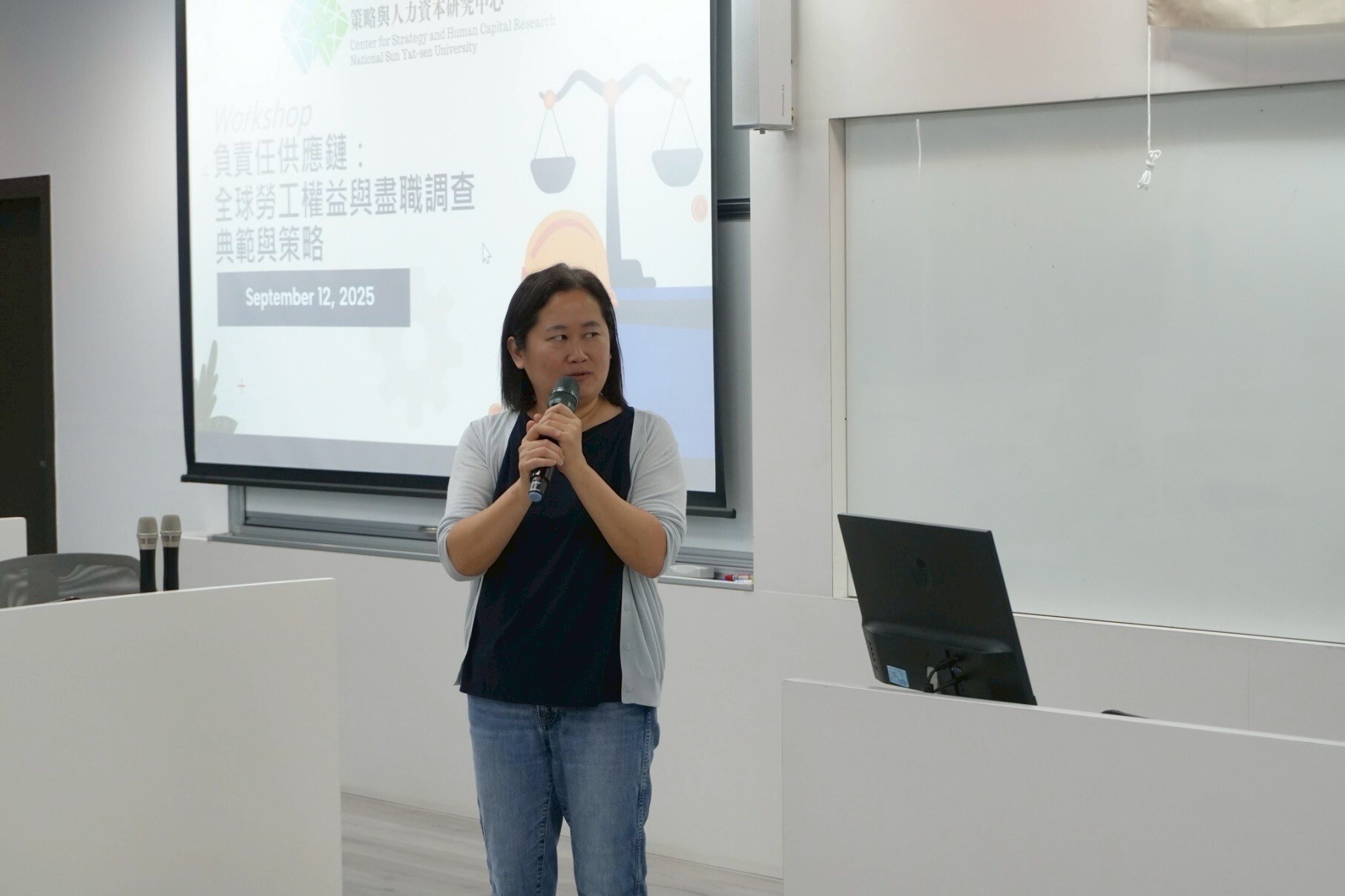
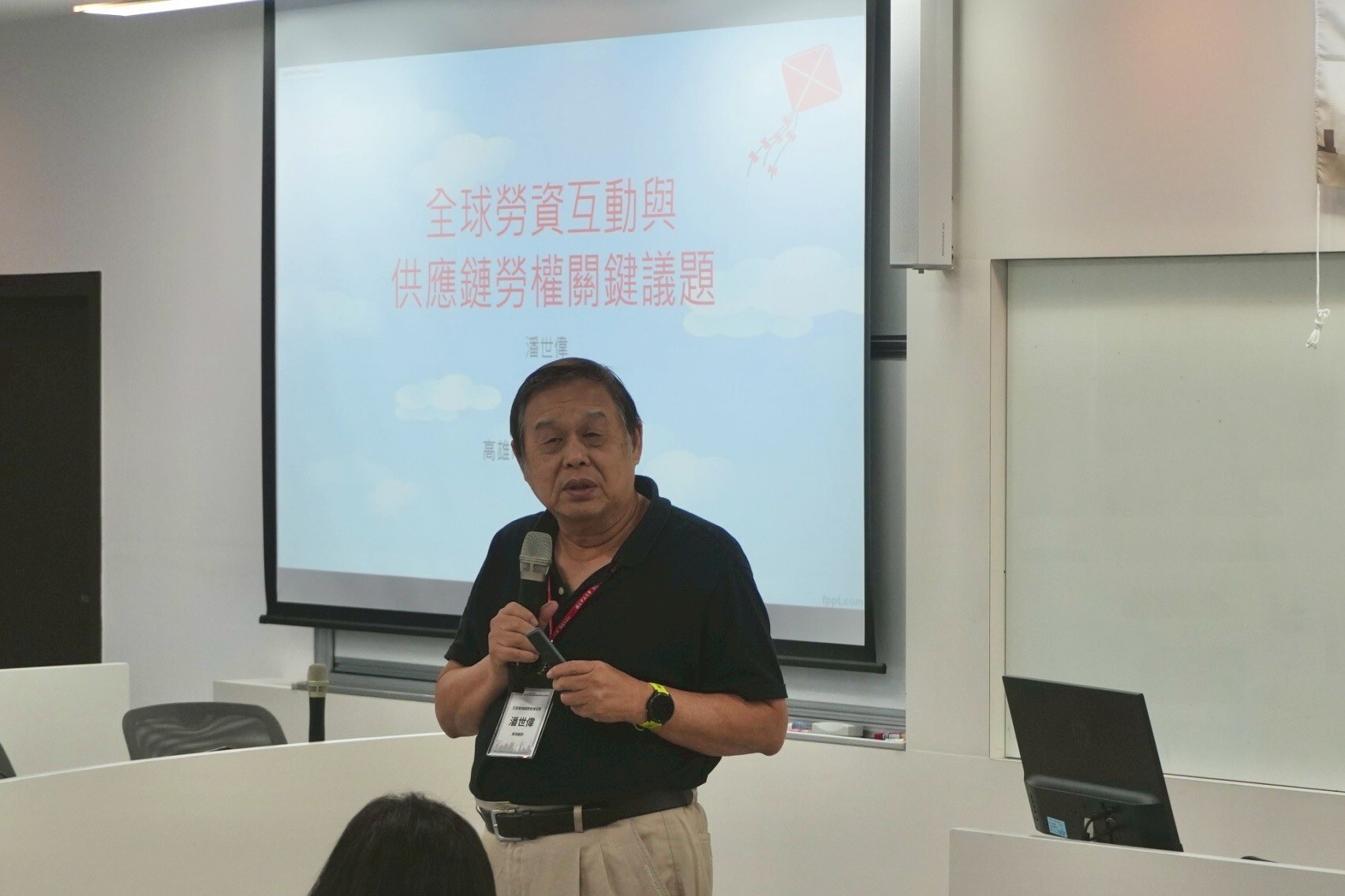
Supply Chain Labor Rights and Regulatory Developments: International Trends and Corporate Response Strategies
The second session was led by Professor Ying-Jung Hung from the Department of Law at National Chung Hsing University, who explored regulatory trends in supply chain labor rights and corporate response strategies. Using examples such as BASF and Volkswagen being forced to withdraw production due to human rights controversies in Xinjiang, she emphasized that even when internal audits find no human rights violations, pressure from NGOs, investors, or governments can lead to divestment and reputational damage. In April of this year, Taiwan also proposed the “Draft Guidelines for Enterprises to Respect Human Rights in the Supply Chain,” demonstrating that regional human rights issues can significantly impact the whole supply chains.
Professor Hung introduced German Supply Chain Due Diligence Act (LkSG) and the EU’s Corporate Sustainability Due Diligence Directive (CSDDD), as well as international frameworks including the UN Global Compact, the United Nations Guiding Principles on Business and Human Rights (UNGPs), and the OECD Guidelines for Multinational Enterprises on Responsible Business Conduct, emphasizing that international norms are shifting from “soft law” recommendations to legally binding regulations. She advised Taiwanese companies to proactively integrate human rights principles into policies, establish due diligence, auditing, and remediation mechanisms, and enhance corporate disclosure to mitigate legal and reputational risks.
Labor Rights and Due Diligence: Corporate Disclosure Standards and Strategic HR Data Applications
The third session, a panel discussion, featured Professor Hsiao-Hui Tai of Chinese Culture University and Professor Nien-Chi Liu of National Taiwan University as panelists, focusing on the “Social” aspect of ESG reporting and corporate responsibilities regarding human resources and labor rights. Professor Tai reviewed the International Labor Conventions (from ILO), the UN Global Compact (UNGC), and Sustainable Development Goals (SDGs), highlighting the importance of collective labor rights, occupational safety and health, and anti-forced labor measures, while noting the impact of the EU CSDDD on supply chain human rights auditing.
Professor Liu introduced HRDD standards and ratings, such as SA8000, ISO 26000, GRI, SASB, and the RBA commonly used in the tech industry, emphasizing that ESG reports that remain purely formal without understanding the meaning behind data and indicators cannot provide actionable guidance. She stressed that HR data analysis should combine descriptive and predictive approaches, using comprehensive data to build models or supplement gaps with peripheral information to enhance decision-making accuracy. HR professionals should also leverage theory and communication strategies to persuade management to make decisions beneficial to corporate development.
Both professors emphasized that although Taiwan does not yet have mandatory HRDD legislation, ESG is a key concern for global investors, and companies should strengthen data management and systems regarding the social dimension to avoid disadvantages in international competition.
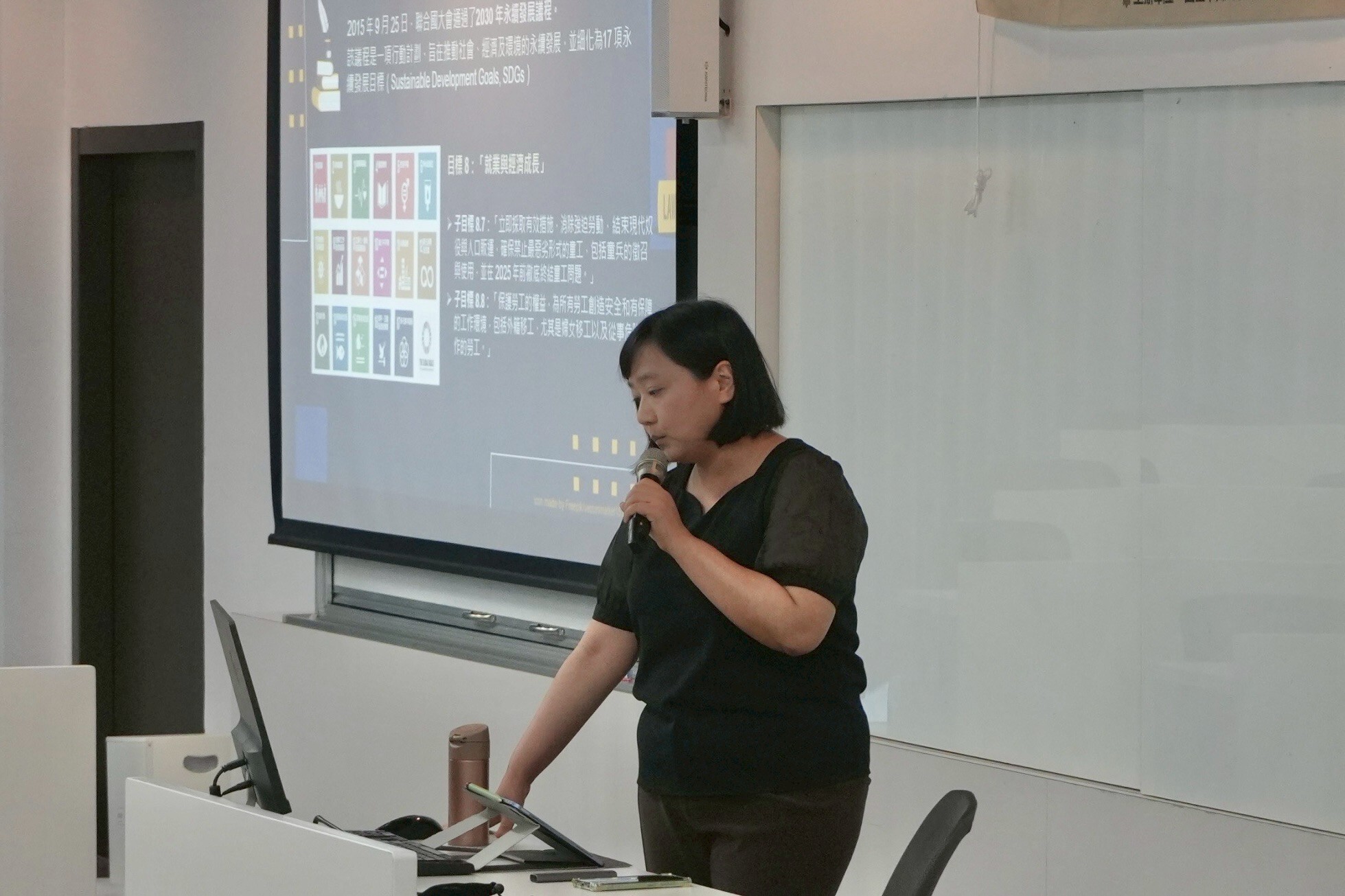
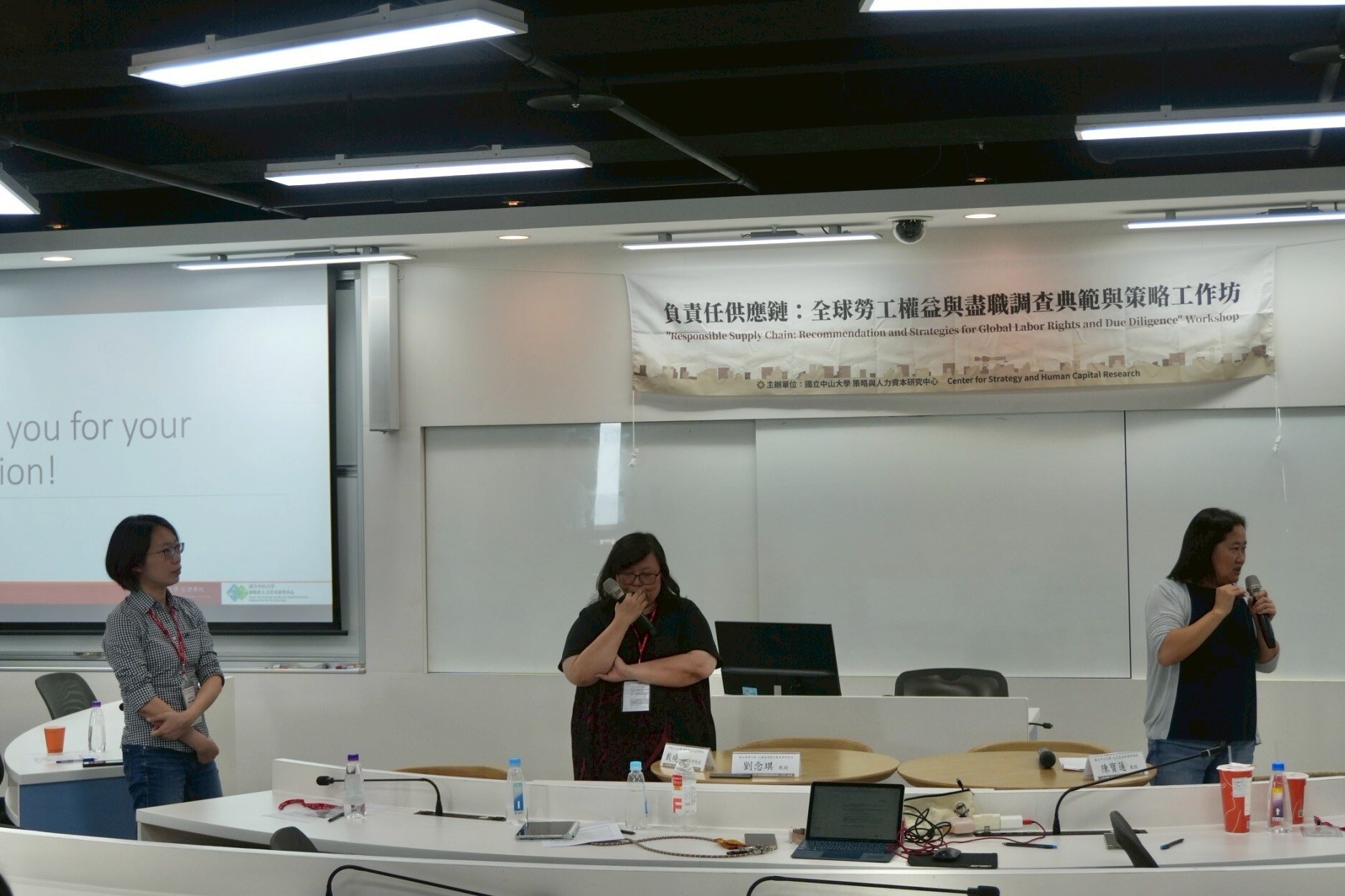
Challenges of Supply Chain Labor Rights and Corporate Responses: Key Insights from Practical Cases
The final session invited Gina Chuang, Vice President of Deloitte & Touche Sustainability and Risk Advisory Co., Ltd. From a consultancy perspective, she analyzed how companies implement HRDD. She noted that “all business operations involve human rights risks.” Drawing on SDG 8 (Decent Work and Economic Growth), she discussed foundational topics such as dignified work and living wages, emphasizing that companies should strive to create “high-quality jobs.” Using Deloitte’s office relocation prior to the 9/11 attacks as an example, she illustrated the importance of proactive risk management—companies should act upon early warning signs to avoid greater losses.
She further outlined three principles for HRDD: risk identification, prevention and remediation, and operational integration, covering all stakeholders across internal operations and the entire value chain through training, risk assessment, audits, and disclosure processes. Effective supply chain human rights management relies on “engagement” and “empowerment”: the former ensures external understanding of internal operations, while the latter help suppliers obtain management tools, resources, and guidance to foster a mutually beneficial ecosystem. The presentation covered trends in international and Taiwanese human rights regulations, the necessity and practical approaches for implementing corporate HRDD, and illustrated cases involving working conditions, living wages, diversity and inclusion, and supply chain risks. It emphasized that neglecting human rights can negatively impact a company’s brand reputation, operational stability, and international collaboration.
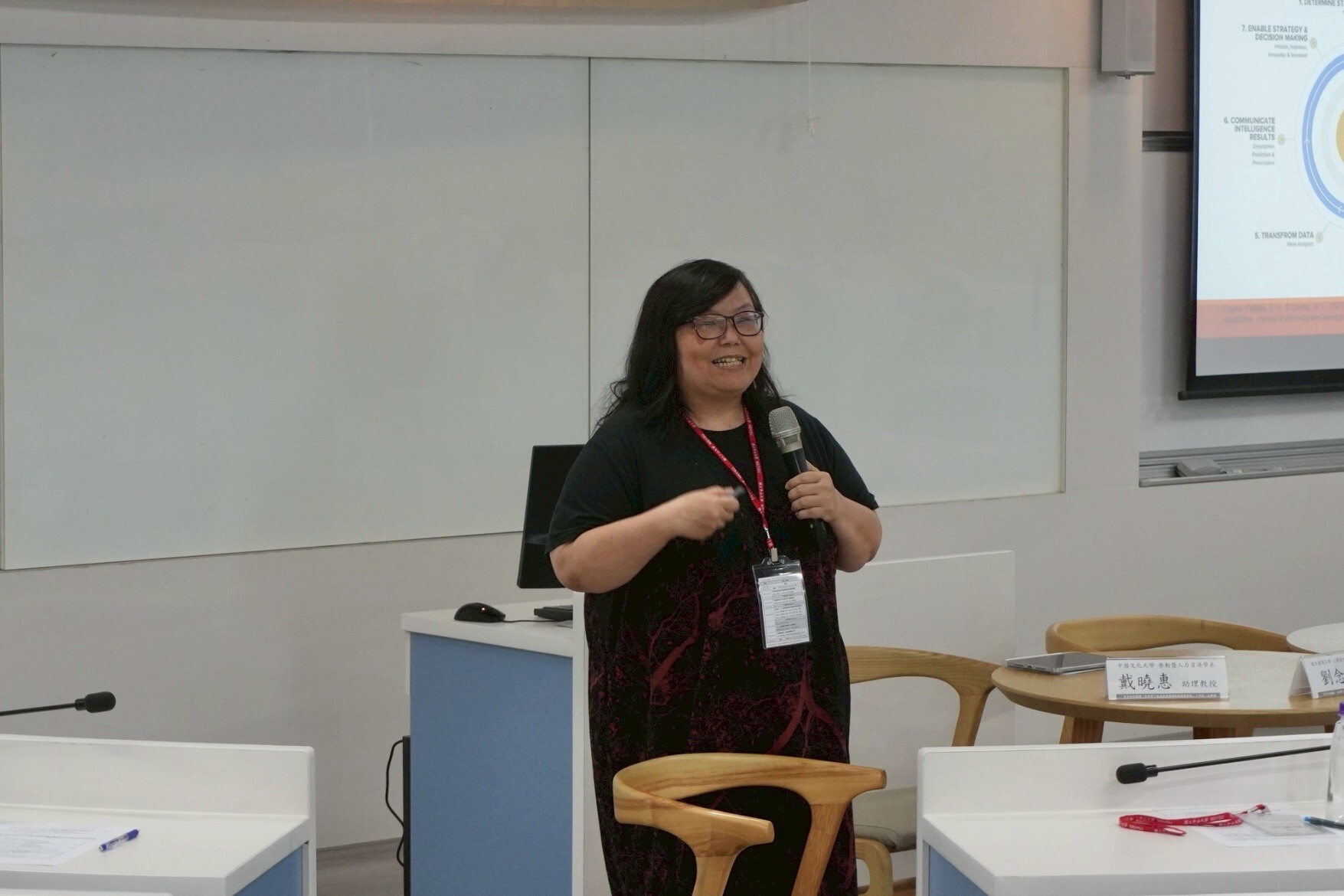
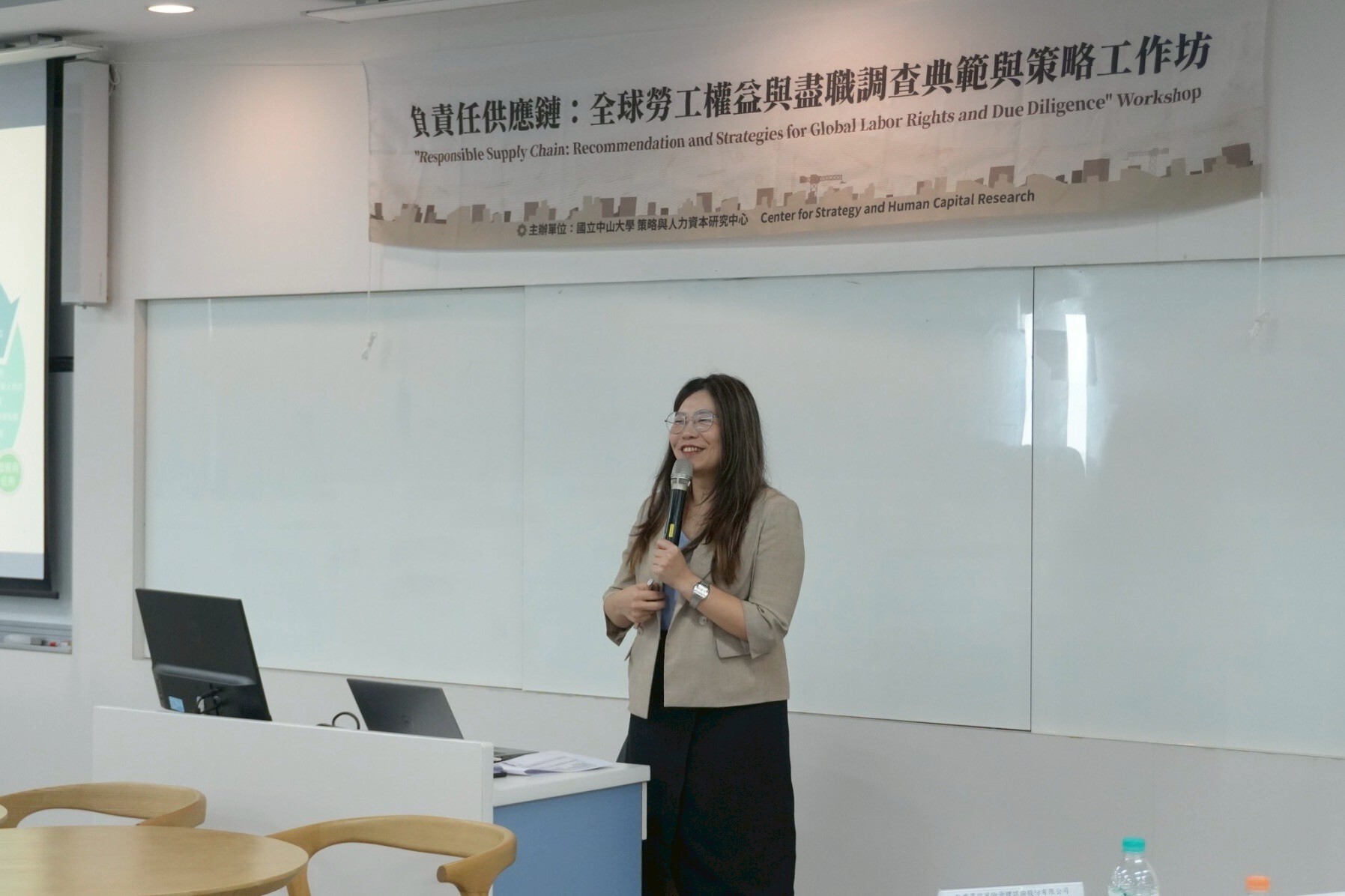
This workshop highlighted labor rights challenges within corporate supply chains, covering global labor-management interactions, international regulatory trends, corporate disclosure practices, and practical case studies, comprehensively demonstrating the importance of corporate implementation of HRDD. Participating scholars and experts emphasized that companies should treat human capital as an investment, integrating risk management, training, and supplier engagement and empowerment to enhance supply chain resilience and global competitiveness.
It is worth noting that the Central Taiwan session will be hosted by the Department of Business Administration at National Chung Cheng University and will concurrently hold a special issue call for papers in the Journal of Human Resource Management on “ESG Theory and Practice from Multiple Perspectives,” reflecting the theme of the seminar. Scholars and practitioners are invited to submit papers covering macro-level ESG governance and supply chains, micro-level human resource practices, and corporate case studies from diverse perspectives.
Photo Highlights
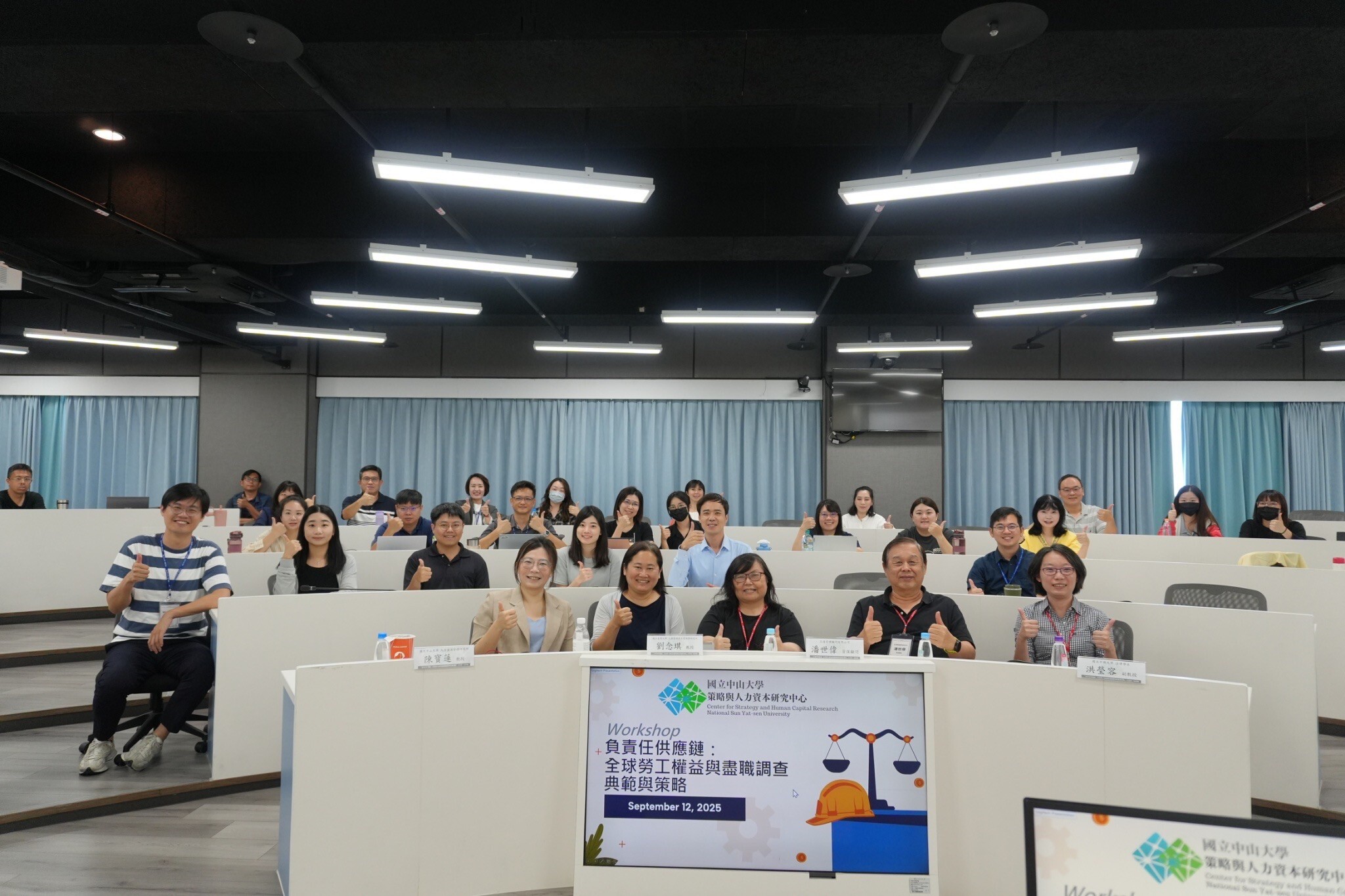
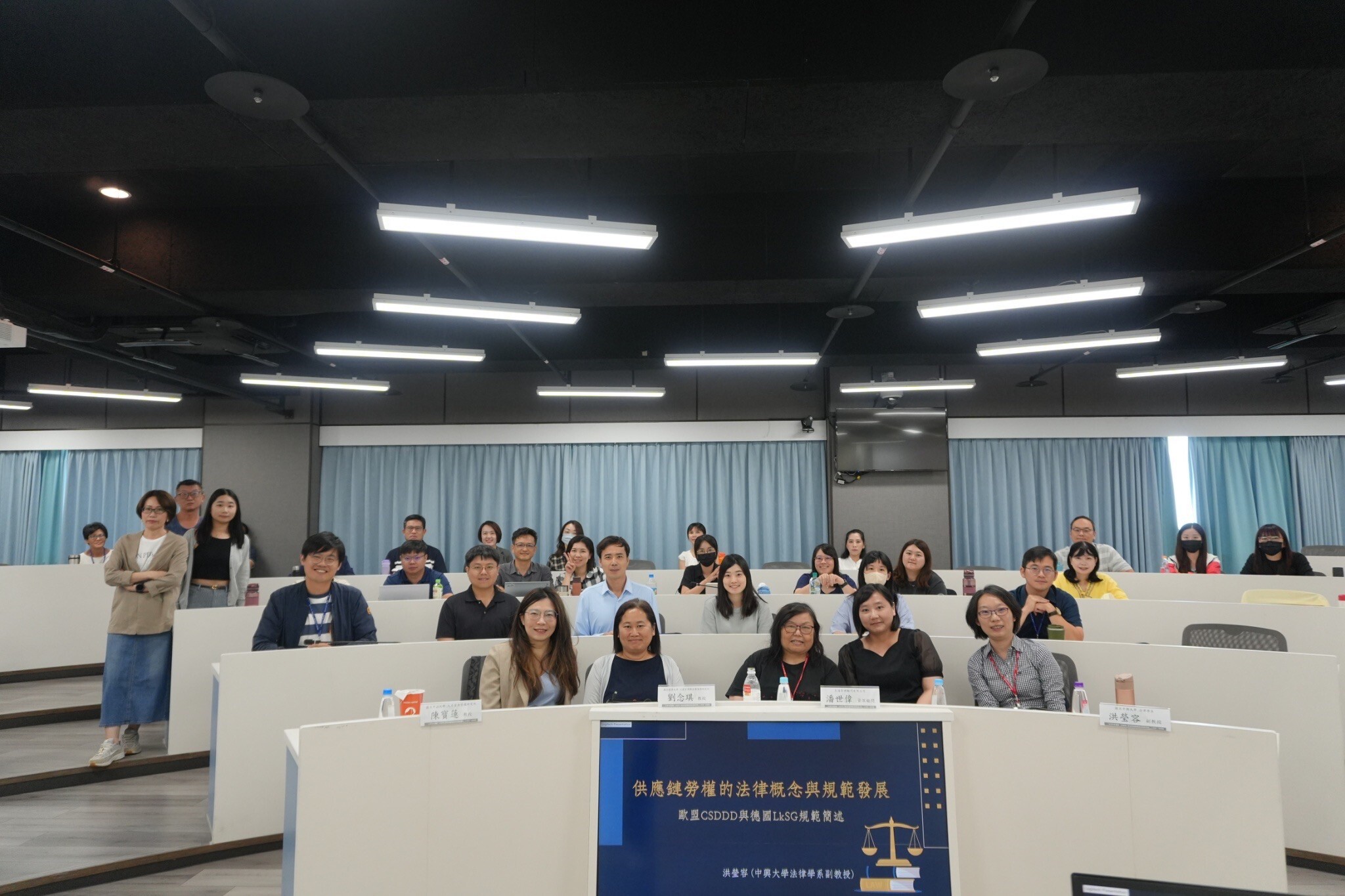
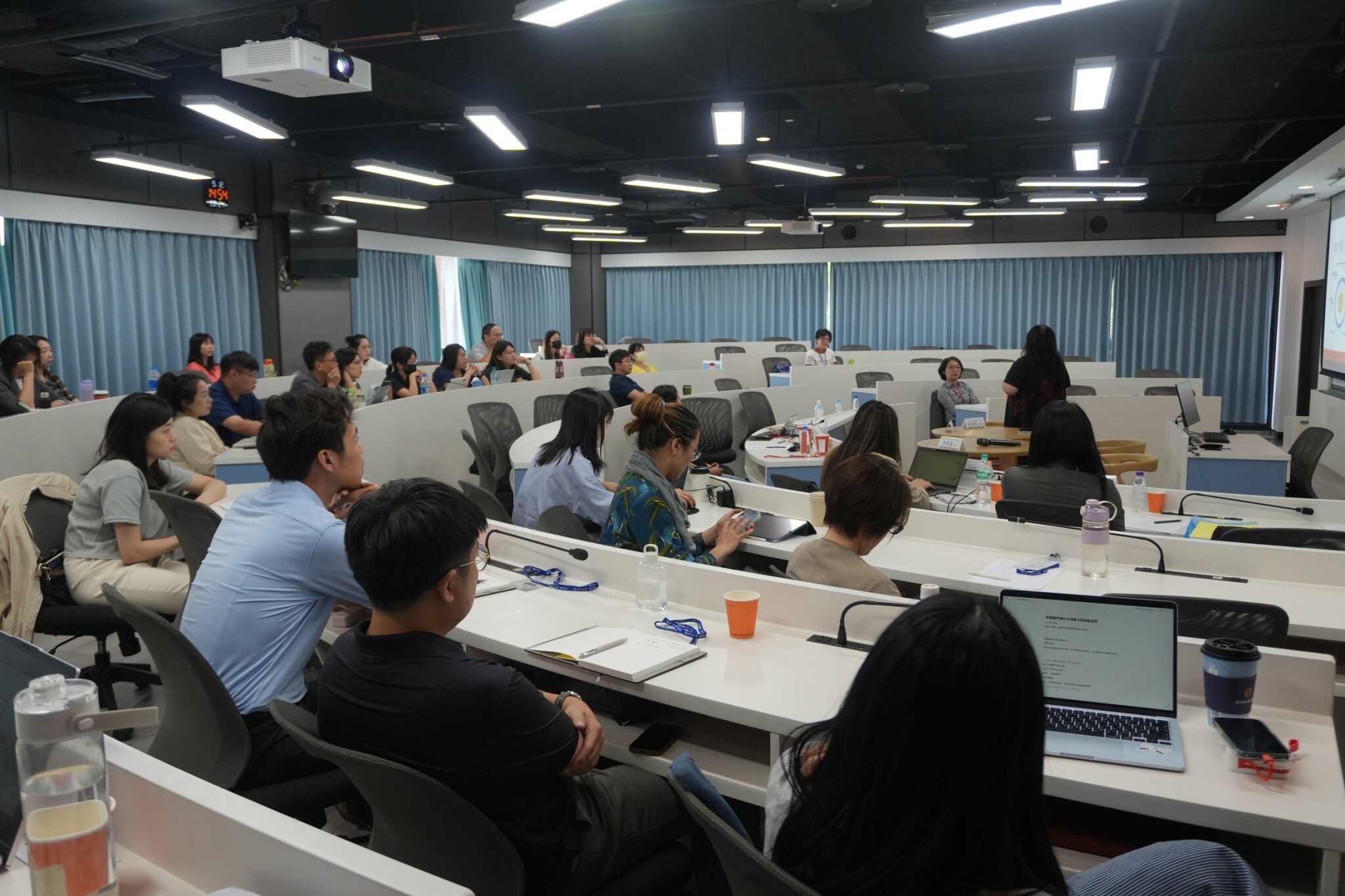
Thank you for your support!

